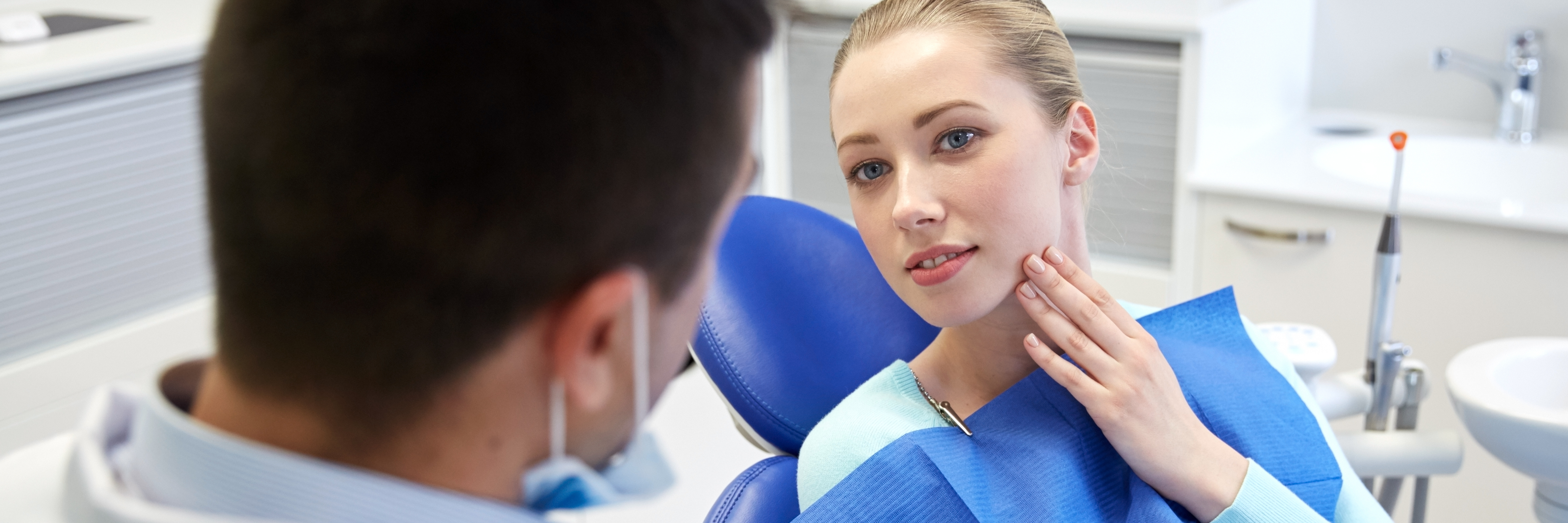With a trigger warning to anyone who, like me, hates any mention of teeth or dentistry.
I don’t usually think of myself as a depressed person. Although I was first diagnosed with dysthymia and major depression in 2000, when I was 22 — and have become known among my family and friends as someone who is quick to advocate for treating mental health problems — I realize that somewhere along the way I had started to think of myself as “cured.” After all, I had been doing exactly what the first psychiatrist prescribed: therapy and antidepressants, in various combinations, for 17 years. Both worked well for me. I had arrived at what Annie Wright recently described here as “high-functioning” depression. Compared to several of my family members who have experienced anxiety attacks, manic episodes and severe depression, I know myself to be lucky in this regard.
But recently something happened to make me remember: I went to the dentist. Now, like most people, I hate going to the dentist, but this isn’t a story of acute anxiety. I hate going to the dentist because I don’t brush my teeth. I mean, I do sometimes, but it has been my deep dark secret for years that I am the kind of person who does not brush their teeth twice a day, or once a day, or maybe up to a week. Fortunately, my genes have provided me with relatively healthy teeth and few cavities up to this point, which is what has allowed me to stay in denial about the effects of my lack of self-care.
It is not that I don’t know I should brush my teeth. I know it’s disgusting not to. The reason I don’t brush my teeth is that I never developed the habit of doing so, and the reason I never developed the habit is because of depression. Depressed people notoriously have trouble with habits of all kinds, especially when the benefits of those habits are not immediate but long-term. When you’re depressed, it is difficult to imagine yourself in the future. It is hard enough to get through the present. It takes me conscious effort to put the dishes away after dinner, or get rid of old food in the fridge. That last fact always reminds me particularly of my father, whose depression went mostly untreated throughout my childhood, and who would insist that the leftover vegetables in the fridge were there because the multicolored mold was pretty.
But eventually, the future catches up with you. Because I don’t brush my teeth, whatever stray bits of food get stuck there become calcified into tartar, and it has built up underneath my gums, where I can’t see it but it can still do damage. It has gotten to the point where the tartar is starting to eat away at the bone, putting me, at age 39, in the early stages of the gum disease that eventually makes old people’s teeth loosen and fall out. The dental hygienist took detailed x-rays of every tooth. She projected them onto the large-screen TV, like some horrific piece of modern art, and the dentist came in to explain them to me. “See this? These long lines here? That’s tartar.” He saw my blank look and reached up and touched the screen for emphasis: “Tartar doesn’t usually show up on x-rays, so you know this is bad. See how some of these lines have little spikes coming out? Those are between your teeth and your gums. That’s why you’re feeling pain.” It is the accumulated tartar — not new cavities, as I feared — that makes my gums and teeth so sensitive that it is painful to brush them; pain makes it easier to procrastinate teeth-brushing, which makes the problem worse and the cycle continue. As many times as I read and hear about how mental illness manifests itself physically, cumulatively, it can be difficult to see in myself.
I’ll always remember something a therapist once told me, that there are two distinct aspects to treating depression: the feelings, and the behavior you develop to cope with the feelings. It’s the behavior — in my case, messiness, lack of self-care, oversleeping, and extreme procrastination — that sticks with us, even when the antidepressants have been effective in taking away the feelings of disproportionate sadness, hopelessness and insecurity that prompted those behaviors. You can’t start working on modifying those behaviors while you’re still depressed. And conversely, you shouldn’t expect antidepressants or whatever to do the work of making you brush your teeth. That’s one of the reasons talk therapy and psychopharmacology can work together.
Only rarely do I feel that sudden onslaught of despair that was once the hallmark of my depression. But I wonder, now, what other habits — or lack thereof — have built up over time, in places I can’t see. Currently, I’m awaiting my appointment for what my insurance company euphemistically calls a “deep cleaning” at the dentist’s. What it really is: my very kind hygienist numbing my mouth, pulling down my gums, and chipping away at years of tartar. She calls this “scaling,” and the mountaineering sound of this word feels apt. For the last two days I’ve brushed my teeth twice a day, like a “normal” person, and yet it feels like I’m summiting Everest every time.
The trick will be not only to keep up the habit, but to do so without becoming overwhelmed by the years of neglect I can feel in my gums. I think of myself as someone who should “know better” that depression is an ongoing condition and requires constant effort. But painful as it is, I’m grateful for the physical reminder that what I do — or don’t do — now, in this moment, will manifest itself in my future life, for better or worse.
We want to hear your story. Become a Mighty contributor here.
Thinkstock photo via dolgachov

